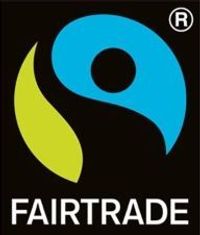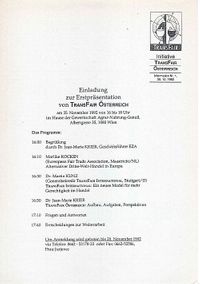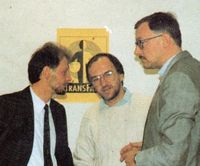Highlights: TransFair - FAIRTRADE (1993-)
Because I was lucky enough to be in the right place at the right time (early 1990s, managing director of EZA Fairer Handel, the pioneering fair trade importer in Austria) I had the opportunity to become one of the initiators of the expansion of fair trade into the broader market.
The central instrument for this expansion was and still is the FAIRTRADE seal.
At that time it was necessary to set up an organization that would give this seal of approval the necessary credibility and then establish it in the market. A major challenge in this context was to convince the many doubters in the very ranks of fair trade of the correctness and importance of this initiative and to motivate them to take this path out of the niche. At the time, many asked themselves how the structures that had grown since 1975 (above all the so-called Third World Shops as well as the mostly church-related action groups) would develop if fair trade products were to really succeed in supermarkets and large grocery chains.
Many meetings, lectures, and many a hot discussion in 1991 and 1992 revolved around this one topic "supermarket, yes or no?". In November 1992 finally the time had come for the first public presentation of the concept and a few months later, the founding meeting of the new association "TransFair Austria" took place in Vienna.
11/25/1992 first public presentation, with helpers from abroad, Marlike Kocken and Martin Kunz | March 30, 1993 founding meeting: with Helmut Adam, first managing director (left), and Helmuth Hartmeyer, first chairman of the association ( right) |
The establishment of "TransFair Austria" put the traditional fair trade structures under tremendous pressure. Even if the first years were to prove difficult for TransFair, it had to be assumed that sooner or later more and more fairly traded products would find their way into the supermarkets, and thus for the first time strong competition for the Third World Shops would arise.
The so-called professionalization program for the shops, which I helped to develop together with the umbrella organization of the Shops (ARGE Weltläden), proved to be the right answer to this challenge: in 1995 the Third World Shops were renamed “Worldshops”, many of them moved to more central locations and with the increasing sales they were able to pay a part-time workers. With this the classic fair trade (which is characterized by its 100% fair range) was on the way from an alms-giving mentality to an attractive and economically viable alternative to other shopping locations…and still is today.


